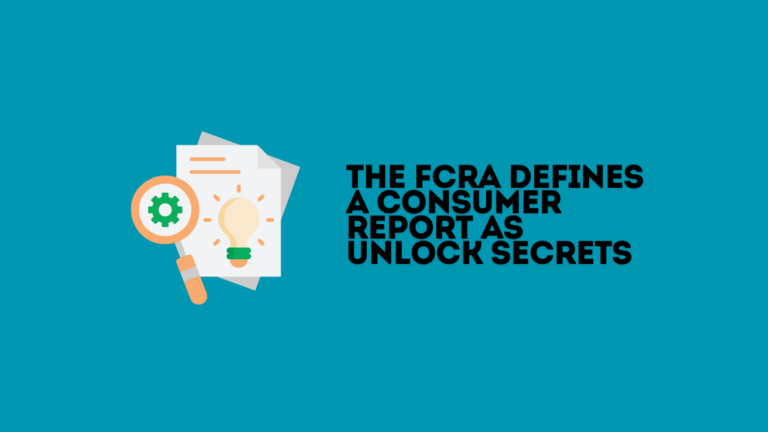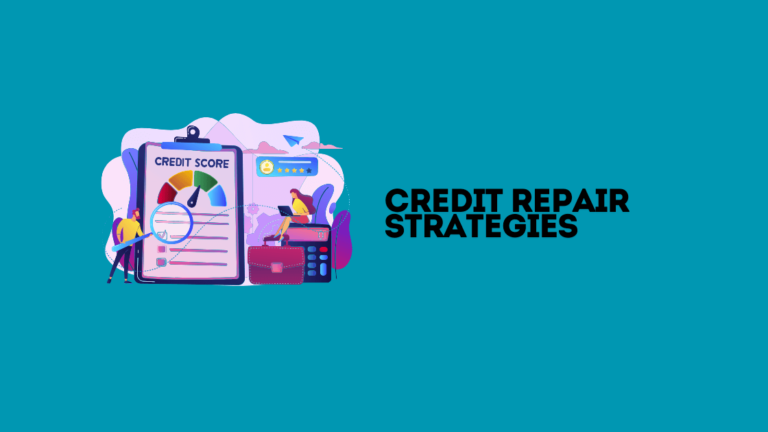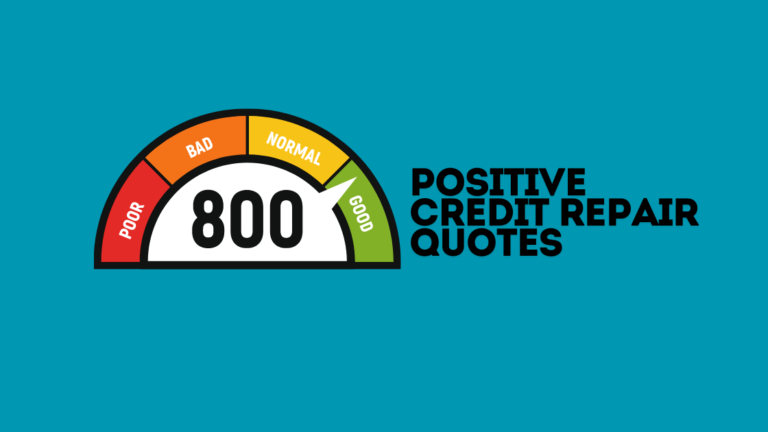How to Fix My Credit for Free: Quick & Easy Solutions
To fix your credit for free, obtain your credit reports and dispute errors. Pay bills on time and reduce debt.
Improving your credit score is crucial for financial health. Many people believe they need to pay for credit repair services, but you can fix your credit for free. Start by obtaining your credit reports from the three major bureaus: Experian, Equifax, and TransUnion.
Review them for errors and dispute any inaccuracies. Consistently paying your bills on time and reducing outstanding debt also significantly boosts your credit score. These steps require discipline and vigilance but can lead to a healthier credit profile without any cost. Taking control of your financial habits can pave the way for better loan terms and overall financial stability.

Credit: www.usatoday.com
Introduction To Credit Repair
Are you struggling with a low credit score? Fixing your credit doesn’t need to be costly. You can repair your credit for free with the right steps and commitment. This guide will introduce you to effective strategies for improving your credit score.
The Importance Of A Healthy Credit Score
A healthy credit score opens many doors. It helps you secure better loan rates. It also affects your ability to rent an apartment. Employers might check your credit score before hiring you. A higher score can save you money and stress. Here’s why:
- Lower interest rates on loans and credit cards.
- Higher chances of loan approval.
- Better insurance premiums.
- More negotiating power with lenders.
Maintaining a good credit score is essential for financial health.
Common Misconceptions About Credit Repair
Many people believe credit repair is expensive. This is a myth. Here are some common misconceptions:
| Myth | Reality |
|---|---|
| You need to pay to fix your credit | You can do it for free with proper steps. |
| Credit repair is quick | It takes time and patience. |
| Only professionals can fix credit | You can manage it yourself with the right tools. |
Understanding these misconceptions can help you take control of your credit repair journey.
Assessing Your Credit Report
Assessing your credit report is a vital step in fixing your credit. It helps you understand where you stand financially. It also identifies areas for improvement. Below are essential steps in assessing your credit report.
How To Obtain Your Credit Report
Accessing your credit report is straightforward and free. You can request a free credit report from each of the three major credit bureaus. These include Equifax, Experian, and TransUnion. Visit AnnualCreditReport.com to request your reports.
Here’s a quick guide to obtaining your credit report:
- Visit the AnnualCreditReport.com website.
- Provide your personal information such as name, address, and Social Security number.
- Select the credit bureaus you want reports from.
- Verify your identity by answering security questions.
- Download and save your reports for review.
Identifying Errors And Discrepancies
Reviewing your credit report for errors and discrepancies is crucial. Mistakes can significantly impact your credit score. Follow these steps to identify errors:
- Check your personal information such as name and address.
- Review your credit accounts for unfamiliar entries.
- Ensure your payment history is accurate.
- Look for duplicate accounts or incorrect balances.
Use the table below to track common errors:
| Error Type | Description |
|---|---|
| Personal Information | Incorrect name, address, or Social Security number. |
| Accounts | Late or missed payments are incorrectly reported. |
| Payment History | The same account listed multiple times. |
| Duplicate Entries | Same account listed multiple times. |
Document any errors you find. Contact the relevant credit bureau to dispute inaccuracies. Fixing these errors can improve your credit score significantly.
Disputing Credit Report Errors
Errors in your credit report can harm your credit score. Fixing them can help improve your financial health. You can dispute incorrect information for free. Follow these steps to correct any mistakes you find.
Steps To File A Dispute
Follow these steps to file a dispute with credit bureaus:
- Get Your Credit Reports: Request your free credit reports from AnnualCreditReport.com.
- Identify Errors: Review each report for inaccuracies. Look for wrong personal information, accounts that aren’t yours, or incorrect account details.
- Gather Evidence: Collect documents that support your claim. This can include bank statements or payment records.
- Submit Your Dispute: Contact the credit bureau online, by mail, or by phone. Provide a detailed explanation and attach your evidence.
- Keep Records: Save copies of everything you send. Keep notes on when and how you sent it.
Follow-up And Resolution
After filing your dispute, follow these steps to ensure resolution:
- Track Your Dispute: Credit bureaus usually have online tracking tools. Use them to monitor the status of your dispute.
- Wait for Response: The bureau has 30 days to investigate. They may contact you for more information.
- Review Results: Once they complete the investigation, review the results. They will send you a report detailing their findings.
- Verify Corrections: Check your credit report again. Make sure the errors have been corrected.
- Dispute Again if Necessary: If the errors remain, you can dispute again. Provide any new evidence you may have.
Disputing credit report errors is a free and effective way to improve your credit score. Stay organized and persistent for the best results.
Improving Payment History
Improving your payment history is crucial for fixing your credit score. A positive payment history can boost your score significantly. Here, we explore strategies for making timely payments and handling past due accounts.
Strategies For Timely Payments
Making payments on time is essential for a good credit score. Here are some effective strategies:
- Set Up Payment Reminders: Use calendar alerts or apps to remind you.
- Automate Payments: Set up automatic payments for recurring bills.
- Prioritize Payments: Always pay at least the minimum amount due.
- Use Budgeting Tools: Track your expenses to ensure you have funds available.
Dealing With Past Due Accounts
Past due accounts can hurt your credit score. Here’s how to manage them:
- Contact Creditors: Explain your situation and negotiate a payment plan.
- Pay Off High-Interest Debts First: Focus on clearing these to save money.
- Consider Credit Counseling: Seek advice from a non-profit credit counselor.
- Check for Errors: Review your credit report for any mistakes.
| Action | Benefit |
|---|---|
| Set Up Payment Reminders | Avoid late payments |
| Automate Payments | Ensure timely payments |
| Contact Creditors | Negotiate better terms |
| Check for Errors | Correct inaccurate information |
Managing Credit Utilization
Credit utilization plays a huge role in your credit score. Keeping it low can help improve your credit rating. This section explains how to manage credit utilization effectively.
Understanding Credit Utilization
Credit utilization is the ratio of your credit card balances to your credit limits. It is calculated by dividing your credit card balance by your credit limit. For example, if you have a $500 balance on a card with a $1,000 limit, your utilization is 50%.
Experts recommend keeping your credit utilization below 30%. Lower utilization shows you are not dependent on credit. This can boost your credit score significantly.
Tips For Lowering Credit Utilization
- Pay off balances early. Try to pay before your statement closing date.
- Request a credit limit increase. This can help lower your utilization rate.
- Spread balances across multiple cards. Avoid maxing out a single card.
- Monitor your spending. Keep track of your purchases to avoid high balances.
- Set up alerts. Get notifications when your balance reaches a certain limit.
Here’s a simple table to understand how credit limit increases can help:
| Current Balance | Current Limit | Utilization Rate | New Limit | New Utilization Rate |
|---|---|---|---|---|
| $500 | $1,000 | 50% | $2,000 | 25% |
Following these tips can help manage your credit utilization better. This, in turn, can improve your credit score over time.

Credit: www.debt.com
Building A Strong Credit Age
Building a strong credit age is crucial for a healthy credit score. The longer your credit history, the better your credit score. Here’s how you can enhance your credit age without spending a penny.
The Role Of Credit History Length
Your credit history length plays a significant role in your credit score. It accounts for 15% of your total credit score. Lenders prefer borrowers with long, stable credit histories. The age of your oldest account, the age of your newest account, and the average age of all your accounts are considered.
| Factor | Impact |
|---|---|
| Oldest Account Age | Higher is Better |
| Newest Account Age | Lower is Better |
| Average Account Age | Higher is Better |
Keeping Old Accounts Open
One simple way to boost your credit age is to keep old accounts open. Closing old accounts can shorten your credit history and lower your score. Even if you don’t use them, keeping them open can help your credit age.
- Review your old accounts.
- Ensure they have no annual fees.
- Keep them active with small purchases.
It’s essential to maintain these accounts responsibly. Avoid accumulating unnecessary debt. Use them wisely to maximize your credit age benefits.
The Impact Of New Credit
New credit affects your credit score. Understanding this impact helps improve your credit. New credit can either help or hurt your credit score. It depends on how you manage it. Below, we’ll explore two essential aspects: Minimizing Credit Inquiries and Smart Timing for New Credit Applications.
Minimizing Credit Inquiries
Every time you apply for new credit, a credit inquiry occurs. These inquiries can lower your credit score. There are two types of inquiries:
- Hard Inquiries: These happen when lenders check your credit for a loan or credit card. They impact your score negatively.
- Soft Inquiries: These occur when you check your own credit or when lenders pre-approve you. They do not affect your score.
To minimize hard inquiries, follow these tips:
- Apply for credit only when necessary.
- Avoid multiple applications in a short period.
- Use credit comparison tools that perform soft inquiries.
By minimizing hard inquiries, you can maintain a better credit score.
Smart Timing For New Credit Applications
Timing is crucial when applying for new credit. Applying for credit at the right time can boost your credit score. Here are some tips for smart timing:
| Situation | Best Timing |
|---|---|
| After paying off a large debt | Wait at least one month |
| Before a major purchase | Apply 6-12 months in advance |
| Improving credit score | Wait until your score improves |
Following these tips ensures your new credit applications have a positive impact on your score.
Diversifying Your Credit Mix
Improving your credit score doesn’t have to be costly. One effective strategy is diversifying your credit mix. This involves having different types of credit accounts, which can boost your credit score. Let’s explore how you can diversify your credit mix for free.
Types Of Credit To Consider
Having a variety of credit types can benefit your credit score. Here are some types to consider:
- Credit Cards: These are revolving credit accounts.
- Installment Loans: These include auto loans and student loans.
- Retail Store Cards: These are specific to certain stores.
- Mortgage Loans: Long-term loans for home buying.
- Personal Loans: These can be used for various purposes.
The Benefits Of A Diverse Credit Portfolio
Having a diverse credit portfolio offers several benefits:
- Improves Credit Score: Lenders see you as responsible.
- Demonstrates Financial Responsibility: Shows you manage different credit types.
- Reduces Risk: Not reliant on a single credit type.
- Better Loan Terms: You may get lower interest rates.
By adding a mix of credit types to your portfolio, you can improve your credit score. This method is free and can have long-term benefits for your financial health.
Maintaining Good Credit Habits
Maintaining good credit habits is crucial for a healthy financial life. It helps you achieve long-term financial stability. Below are some essential habits to keep your credit in top shape.
Regular Credit Monitoring
Regular credit monitoring is essential to keep your credit score healthy. It helps you spot errors and fraudulent activities quickly. Use free credit monitoring services to get alerts.
Check your credit report from the three major bureaus:
- Equifax
- Experian
- TransUnion
Dispute any inaccuracies you find. Regular checks ensure your credit report is accurate and up-to-date.
Creating A Budget And Debt Plan
Creating a budget and debt plan helps you manage your finances better. A good budget tracks income and expenses. It ensures you do not spend more than you earn.
Follow these steps to create a budget:
- List all your income sources.
- List all your monthly expenses.
- Subtract expenses from income to see your cash flow.
Once you have a budget, create a debt repayment plan. Prioritize paying off high-interest debts first. This helps you save money on interest payments.
Consider using a table to track your debts:
| Debt Type | Amount Owed | Interest Rate | Monthly Payment |
|---|---|---|---|
| Credit Card | $1,000 | 15% | $50 |
| Personal Loan | $5,000 | 10% | $200 |
Stick to your budget and debt plan to maintain good credit habits. Consistency is key to improving your financial health.
Free Credit Assistance And Resources
Fixing your credit can seem like a daunting task, but it doesn’t have to be expensive. There are numerous free credit assistance and resources available that can help you improve your credit score. From non-profit credit counselors to online tools and apps, you can find the support you need without spending a dime.
Non-profit Credit Counselors
Non-profit credit counselors offer free advice and guidance. They can help you understand your credit report and create a plan to improve your score. Look for agencies that are accredited by the National Foundation for Credit Counseling (NFCC) or the Financial Counseling Association of America (FCAA).
| Service | Details |
|---|---|
| Credit Report Analysis | Understand what’s on your credit report |
| Debt Management Plans | Create a plan to pay off your debt |
| Budget Counseling | Help with creating a budget |
Online Tools And Apps
Many online tools and apps can help you monitor and improve your credit. These tools often offer free credit scores, credit monitoring, and tips to boost your score.
- Credit Karma: Provides free credit scores and reports.
- Mint: Helps you manage your finances and track your credit score.
- Credit Sesame: Offers free credit monitoring and identity theft protection.
Using these tools can give you a clearer picture of your credit health. They can alert you to changes in your credit report and offer personalized advice.
Regularly checking your credit report is crucial. You are entitled to one free report from each of the three major credit bureaus annually. Use websites like AnnualCreditReport.com to access these reports.
When To Consider Professional Help
Fixing your credit score by yourself is possible and often free. But sometimes, professional help is necessary. Complex credit issues or lack of time might require an expert’s touch. Here is when you should consider turning to professionals.
Recognizing Complex Credit Issues
Some credit problems are simple. You can dispute errors or pay off debts. But others are more complicated. You might face identity theft or legal judgments. These issues need expert help.
If you see multiple errors on your report, it can be overwhelming. Professionals can handle these for you. They know the laws and procedures. This ensures your issues get resolved correctly.
When you have multiple debts or accounts in collections, it can be hard to manage. A credit repair service can negotiate with creditors. They can also create a plan to improve your score.
Selecting Reputable Credit Repair Services
Not all credit repair services are trustworthy. Some can scam you. Always look for a reputable service. Check for these signs:
- Good reviews and ratings
- Accreditation from trusted organizations
- Clear and upfront pricing
Be wary of services that promise quick fixes. Improving credit takes time. A good service will give realistic timelines.
Ask questions before hiring a service. Here are some to consider:
- What services do you offer?
- How long will it take to see results?
- What are your fees?
Choosing a reputable service can save you money and stress. It ensures your credit gets fixed properly.
Is a Credit Sweep an Effective Way to Fix My Credit for Free?
A credit sweep might seem like a quick fix, but it can be risky and often involves disputing all negative items on your report, even legitimate ones. If you try to do a credit sweep yourself, you could face legal consequences or further damage your credit instead of improving it effectively.
Frequently Asked Questions
1. Can You Repair Credit Without Paying?
Yes, you can repair credit without paying. Dispute errors on your report, pay bills on time, and reduce debt.
2. How Can I Fix My Credit Fast On My Own?
Dispute errors on your credit report. Pay down credit card balances. Make all payments on time. Avoid new credit inquiries. Monitor your credit regularly.
3. How To Fix A Credit Report For Free?
Request a free credit report from annualcreditreport. com. Identify errors and dispute them with the credit bureau. Provide documentation. Recheck for updates.
4. How To Raise Your Credit Score 200 Points In 30 Days?
Dispute errors on your credit report. Pay down high balances. Avoid new credit inquiries. Use a secured credit card. Make timely payments.
5. How Can I Check My Credit Report For Free?
You can check your credit report for free at AnnualCreditReport. com. This site offers one free report from each bureau annually.
Conclusion
Fixing your credit for free is entirely possible with dedication and the right steps. Stay consistent, monitor your progress, and use the resources available to you. By following these tips, you’ll be on your way to a healthier financial future without spending a dime.
Start today and watch your credit score improve.







